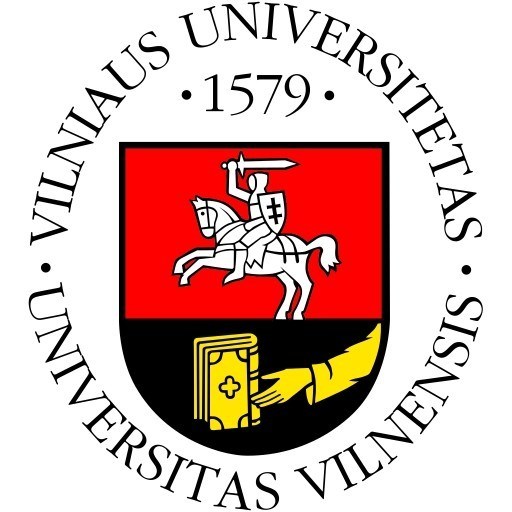Photos of university / #rmituniversity
The Bachelor of Data Science at RMIT University is a comprehensive undergraduate program designed to equip students with the essential skills and knowledge required to analyze, interpret, and leverage data in various industries. This program provides a strong foundation in mathematics, statistics, and computer science, combined with specialized training in data management, visualization, and machine learning techniques. Throughout the course, students will engage with real-world datasets and projects, enabling them to develop practical problem-solving abilities and enhance their analytical thinking. The curriculum emphasizes a multidisciplinary approach, preparing graduates to address complex data challenges across sectors such as finance, healthcare, marketing, and technology. Students will learn to utilize industry-standard tools and programming languages like Python, R, and SQL, gaining proficiency in data extraction, processing, and visualization. The program also covers critical topics such as data ethics, privacy, and security, ensuring graduates understand the social implications of data-driven decision-making. With a focus on hands-on learning, students will have access to cutting-edge laboratories and industry partnerships that facilitate internships and collaborative projects. By the end of their studies, graduates will be capable of designing and implementing data solutions, performing advanced statistical analysis, and communicating insights effectively to stakeholders. The Bachelor of Data Science aims to produce versatile professionals who can adapt to the rapidly evolving data landscape and contribute meaningfully to their chosen fields. With the high demand for data expertise in today’s digital economy, this program positions students for a dynamic and rewarding career in data science and analytics.
Students and Scholars can Combine the Institute of Analytics Professionals of Australia (IAPA). IAPA is the professional organisation for those analytics industry in Australia, incorporating business analytics and data mining over multiple areas and sectors.
A Australian Bachelor degree or equivalent from a recognised tertiary institution with a minimum Credit average that means your grade point average (GPA) of 2.0 (GMAT 560) in computing, science, engineering or health.
Want to improve your English level for admission?
Prepare for the program requirements with English Online by the British Council.
- ✔️ Flexible study schedule
- ✔️ Experienced teachers
- ✔️ Certificate upon completion
📘 Recommended for students with an IELTS level of 6.0 or below.
The Bachelor of Data Science program at the Royal Melbourne Institute of Technology (RMIT) offers various financing options to support students throughout their studies. Domestic students may be eligible for government loans such as the Australian Government’s Higher Education Loan Program (HELP), which includes schemes like HECS-HELP, FEE-HELP, and other assistance options designed to reduce the immediate financial burden of tertiary education. These loans allow students to defer paying their tuition fees until they are earning above a certain income threshold after graduation, making higher education more accessible and affordable for Australian citizens and eligible permanent residents.
International students enrolled in the program are generally responsible for paying tuition fees upfront or through a payment plan arranged directly with RMIT. The university offers a range of financial arrangements, including scholarships, grants, and payment plans, to assist international students in managing their expenses. Scholarships are available based on academic merit, leadership qualities, and other criteria, which can significantly offset the costs of tuition and related expenses.
In addition to scholarships, students may explore external funding sources such as government grants, private sponsorships, or university-specific bursaries. RMIT also provides guidance and resources to help students identify suitable financial support, including advice on budgeting, work opportunities, and financial planning. Many students opt to work part-time during their studies; RMIT’s location and industry connections facilitate access to part-time employment, internships, and industry placements related to data science, helping students gain practical experience while earning supplementary income.
Financial aid and support services are available through RMIT’s Student Support services, which provide personalized assistance, financial counseling, and information on external funding opportunities. Students are encouraged to apply early for scholarships, explore payment plan options, and seek guidance to ensure they can manage their educational expenses effectively. Overall, the RMIT Data Science program aims to provide flexible and comprehensive financial solutions to enable students from diverse backgrounds to pursue their academic and professional goals without undue financial hardship.
The Bachelor of Data Science at RMIT University is a comprehensive undergraduate program designed to equip students with the theoretical knowledge and practical skills necessary to analyze complex data sets and extract valuable insights. The curriculum integrates core areas such as mathematics, statistics, computer science, and domain-specific knowledge to prepare graduates for a variety of roles within industries that rely heavily on data analysis and digital innovation. Throughout the course, students gain proficiency in programming languages like Python and R, data visualization tools, and machine learning techniques, enabling them to handle large-scale data projects from inception to deployment. The program emphasizes real-world applications, encouraging students to work on industry projects and internships that foster practical experience. Collaboration with industry partners provides students with opportunities to solve actual business problems, understand organizational needs, and develop solutions that are both innovative and effective. The curriculum is regularly updated to reflect the latest developments in data technology and analytics methods, ensuring that graduates remain competitive in a rapidly evolving job market. Graduates of the Bachelor of Data Science can pursue careers in sectors such as finance, healthcare, government, and technology, where data-driven decision-making is critical. The university also offers pathways for further education, including postgraduate studies and research opportunities in data science and related fields. Overall, the program aims to prepare students to become proficient data scientists who can contribute to technological advancement and strategic decision-making processes across various industries.








